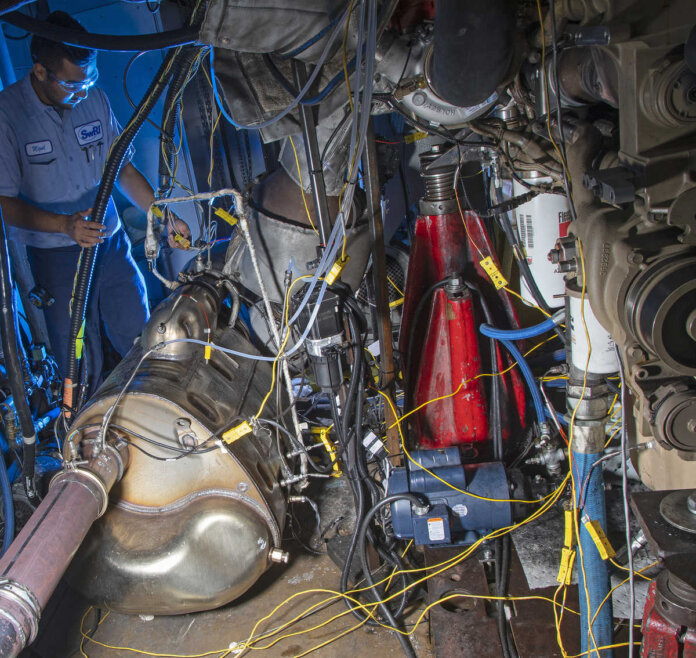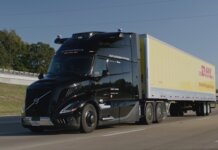Southwest Research Institute (SwRI) engineers have developed clean diesel engine technology to reduce hazardous nitrogen oxides (NOx) and carbon dioxide emissions while minimizing fuel consumption.
Working with regulatory agencies, vehicle manufacturers and suppliers, SwRI combined engine modifications with integrated after-treatment technology and control strategies to reach near-zero emissions levels. SwRI developed the technology for the California Air Resources Board (CARB), a state organization charged with combatting air pollution.
“Through the continued efforts of a multidisciplinary team, SwRI has developed one of the most fuel-efficient, low-emission diesel engines in the world,” says Bryan Zavala, research engineer at SwRI.
“Created to address California’s pollution challenges, this technology could be a solution for communities around the globe dealing with the effects of NOx,” he adds.
California plans to enact tighter emissions standards in 2024 and will require that heavy-duty engines produce fewer pollutants. Taking a systems approach to address the problem, SwRI engineers met CARB’s stringent emissions goals to reduce NOx by 90% while simultaneously lowering carbon dioxide emissions.
In 2013, CARB contracted SwRI to investigate potential approaches for achieving an ultra-low NOx target in three stages. Stage one assessed the feasibility of lowering engine NOx emissions. In stage two, SwRI engineers developed a low-load certification cycle to gauge the performance of engine aftertreatment systems in low-load conditions, such as while idling. Stage three, which is ongoing, has consisted of developing near-zero-emissions technology and evaluating it. Engineers modified a 2017 Cummins X15 engine architecture, integrated after-treatment technology and enhanced controls to produce the desired results.
SwRI continues to evaluate the system and its NOx reduction performance under realistic operating conditions such as hydrothermal stress and catalyst contamination to validate real-world performance. Final results are expected in summer.
Photo: SwRI engineers developed clean diesel engine technology to reduce NOx and CO2 emissions





